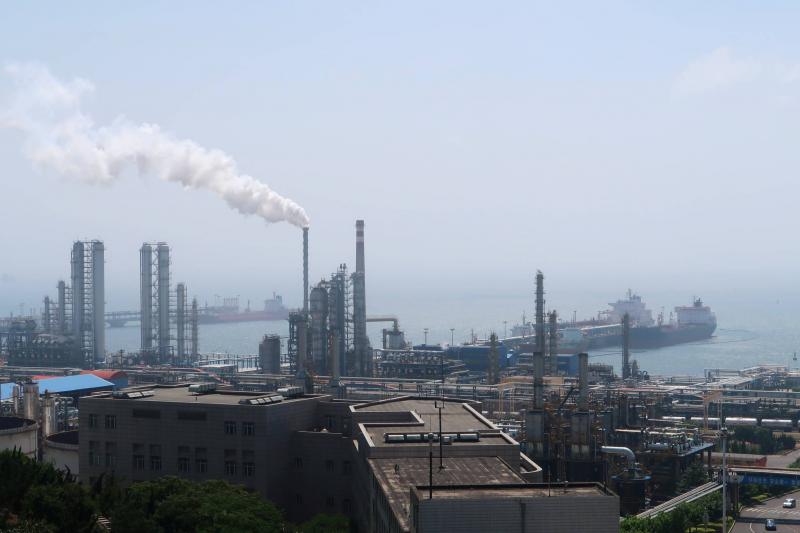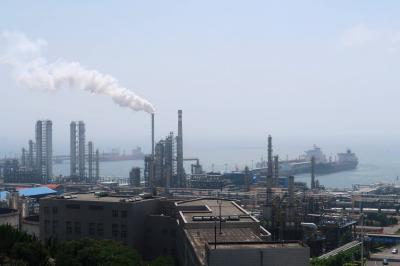LNG importers in China have begun establishing or expanding trading offices in London and Singapore to better manage their growing and diverse import portfolios in an increasingly volatile global market. This commercial presence enhancement puts Chinese importers in direct competition with major global companies like Shell, BP, Equinor, and TotalEnergies in a market that the International Energy Agency says doubled in size to reach $450 billion last year. About ten Chinese companies have strengthened their trading teams or opened new offices, with ENN Natural Gas and state-run China National Offshore Oil Corporation (CNOOC) being the latest to plan office openings in London, while China Gas Holdings has launched operations in Singapore, according to company officials and traders.
Chinese gas importers have also increased their long-term LNG contracts with suppliers in Qatar and the United States by about 50 percent since late 2022, raising the total to over 40 million tons per year, with plans to import more from these countries as well as from Oman, Canada, and Mozambique.
Toby Copson, head of global trading at Trident LNG based in Shanghai, stated, "We will see a qualitative shift in Chinese companies from being more importers to becoming major trading players at both the international and domestic levels." Copson noted that state-owned companies PetroChina, Sinopec, and Sinochem Group are actively engaging in significant trading to capitalize on their long-term portfolios.
China is competing with Japan to become the world’s largest LNG importer, but it remains unclear how much excess supply or additional quantities may be available for trading by Chinese companies. PetroChina International traded approximately 30 million tons of LNG last year, making it the trading arm of PetroChina and the largest gas trader in China, with a global team of one hundred members in Beijing and four other international offices. Zhang Yaoyou, the global head of LNG trading at PetroChina International, declined to comment on the company’s trading volumes but indicated that trading is part of the company’s overall strategy, stating, "Securing supplies remains at the core of our business activities. Trading capability is one of the enablers... to help us better manage market volatility."
By 2026, Chinese companies are expected to contract for over one hundred million tons annually of imported LNG. Putin and Partners consulting suggests this could mean a surplus of up to eight million tons in that year, while estimates from I.C.I.S. pricing agency project a shortfall of five to six million tons. In either case, China's increasing domestic production alongside greater pipeline gas supply from Central Asia and Russia provides enough fundamental fuel supply for Chinese gas companies to trade or swap with U.S. and other international commodity portfolios when arbitrage opportunities arise or when market conditions warrant.
Jason Feir, head of business intelligence at Putin and Partners, stated, "I can anticipate that China will become a seasonal seller to regions such as Southeast Asia, South Korea, and Japan, as well as to Europe." LNG contracts in the U.S. are made on a ship-or-spot delivery basis with no destination restrictions, and Rystad Energy expects the U.S. will capture a quarter of Chinese long-term contracts by 2030. Qatar, which will be China’s largest supplier by 2026, provides traditional LNG contracts that are destination-limited or single country.
The Russian invasion of Ukraine last year forced European buyers to increase their LNG imports by two-thirds to replace Russian gas delivered via pipelines. This has created opportunities for companies with available supplies, as Chinese, Japanese, and South Korean firms seized the moment amid soaring global LNG prices and doubled market values. Feir indicated that European users seem hesitant to sign long-term contracts due to the decarbonization targets set by their countries. Asian gas traders and importers are sending LNG to Europe during the spring and summer seasons to fill storage there.
PetroChina International signed a deal in May to utilize a regasification terminal in Rotterdam for 20 years, marking the first deal for a Chinese company in Europe. These openings in the market and the easing of domestic gas market restrictions have led Chinese gas distributors and smaller importers to expand their trading spaces. For instance, a China Gas Holdings executive told Reuters that the company, which has signed contracts for about 3.7 million tons of American LNG per year, is in the process of hiring its first two traders for a new office in Singapore and is looking to secure more contracts. The company joins ENN, Beijing Gas, Zhejiang Energy, and Jovo Energy in establishing a commercial presence in Southeast Asia's energy hub. An employment official in Singapore noted, "Compared to Japanese companies, the Chinese are more enthusiastic about expanding, with PetroChina International and Unipek being among the top payers, offering packages comparable to major global firms" in their efforts to find qualified talent.




